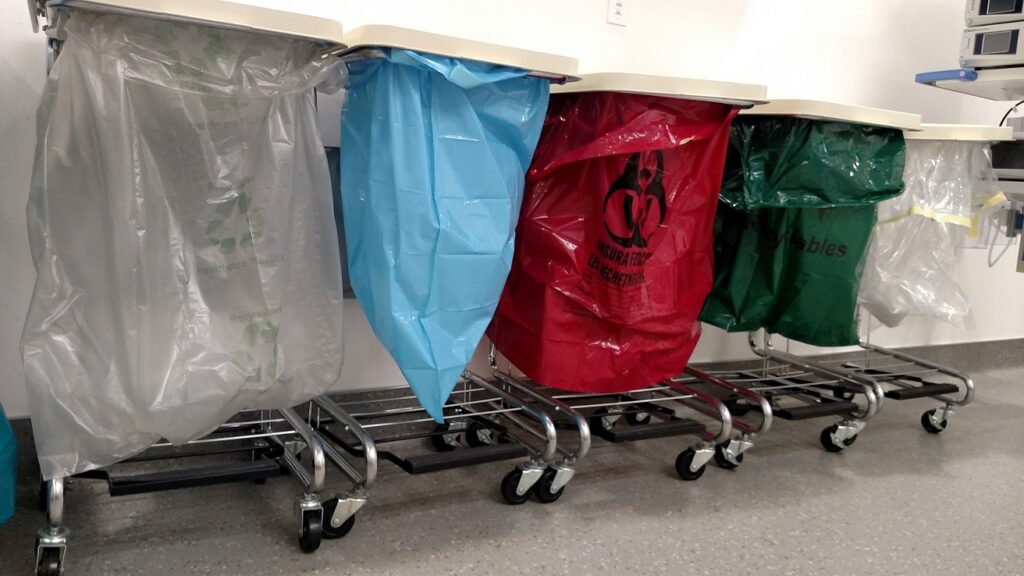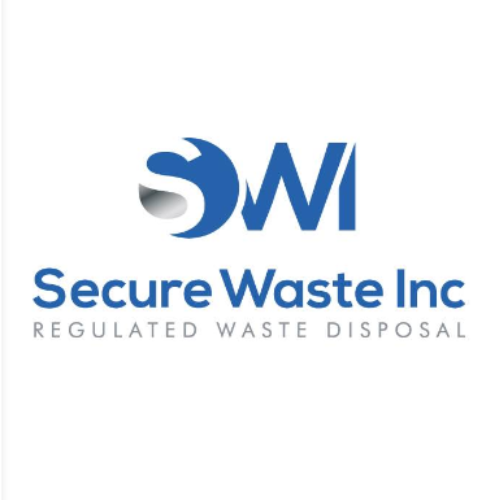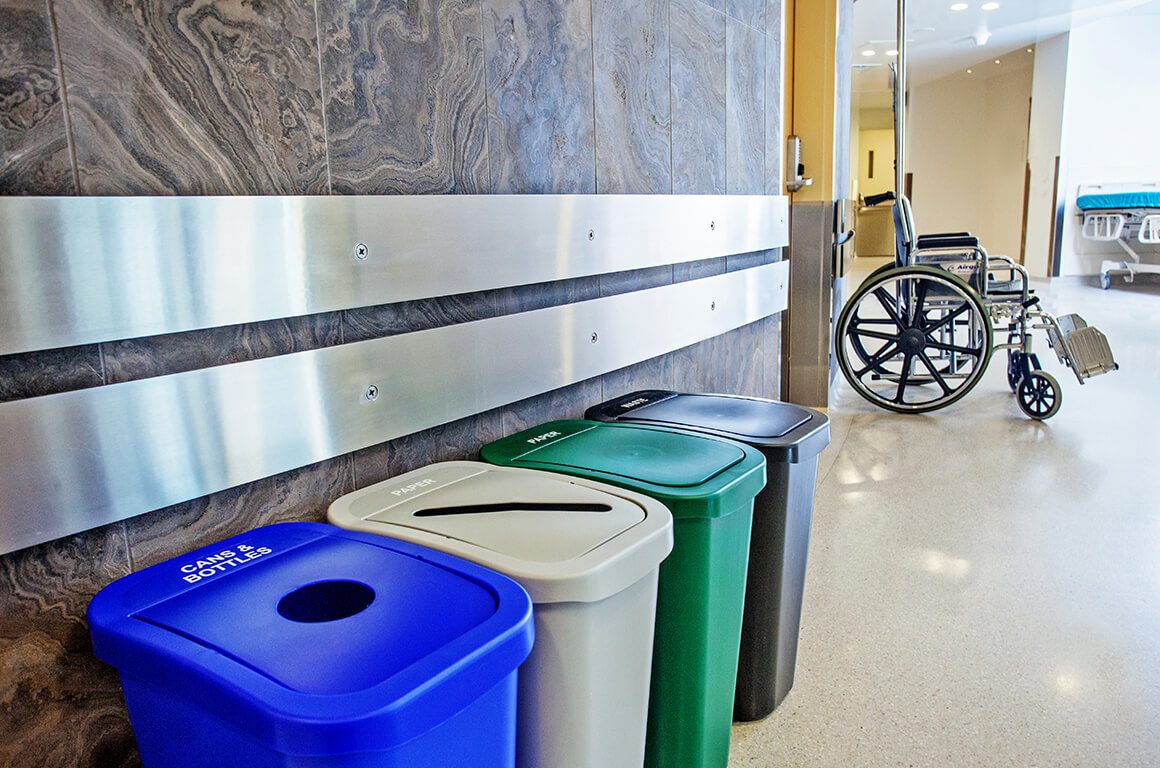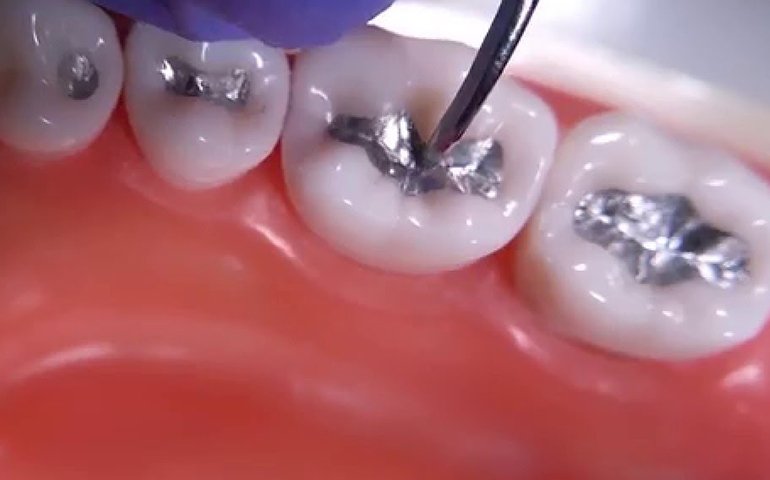Hospital Waste Reduction And Management: Everything You Need To Know. Expert Solutions From Secure Waste
Hospitals and health networks are incredible hubs of coordinated care that truly prioritize the health and happiness of our communities! With a passionate focus on safety, innovation, sustainability, and cost-effectiveness.
Secure Waste partners with healthcare organizations of all sizes. Together, we foster growth, safeguard reputations, and empower the delivery of transformative healthcare that makes a real difference!
Reducing hospital waste management costs is a wise decision for any healthcare organization. Effective waste management can lead to significant cost savings, especially as expenses in various sectors continue to rise.
Another key benefit of efficient hospital waste management is sustainability. By reducing waste, businesses save money and contribute to environmental conservation. This commitment can enhance a company’s reputation and attract eco-conscious consumers.
Strategies for waste reduction can include recycling, composting, and reusing materials. These methods can lower disposal costs while minimizing environmental impact. Companies must explore all options to reduce waste and maximize savings.
Healthcare Waste Management Fundamentals
Waste management involves disposing of waste to protect the environment and save costs. This section discusses how waste is generated and the principles that guide waste reduction, reuse, and recycling.
Hospital Understanding Waste Generation
The hospital and healthcare industries generate various types of waste, including biomedical and hazardous waste, pharmaceuticals, food scraps, plastic packaging, and electronic waste.
Understanding the types of waste produced is essential for planning effective waste management strategies in the Hospital setting. Conducting waste audits can help identify the types and quantities of waste generated, providing crucial information for creating programs to reduce waste and improve recycling rates.
Implementing sustainable practices can significantly impact waste reduction. Initiatives such as minimizing packaging materials, reusing items, and recycling can help decrease the overall amount of waste produced. Tracking waste generation is essential for pinpointing improvement areas and establishing effective waste reduction programs.

Biomedical, Hazardous, And Sharps Waste A Hospital Most Expensive Waste
As a company dedicated to sustainability, Secure Waste will collaborate with hospitals to achieve optimal results in waste segregation, landfill diversion, and environmentally responsible treatment. Our comprehensive approach allows us to influence behavior and enhance waste management processes at multiple touchpoints every day.
We identify incorrect waste segregation at the ward or location level through waste audits, Secure Waste, and intelligent tracking technology. We provide superior mounting and movement solutions and clinically engineered, bagless containers that eliminate the need for double-handling and decanting. Our color-coded systems encourage adequate waste segregation.
By partnering with Secure Waste hospitals, we help save costs and improve efficiencies in properly optimizing waste management.
Strategies For Cost Savings In Waste Management
Effective waste management can lower costs by utilizing strategies such as source reduction, optimizing recycling methods, and composting organic waste. These methods yield substantial financial and environmental benefits.
Site Source Reduction and Reuse
Source reduction involves minimizing waste right at its origin. By generating less waste initially, hospitals and businesses can save money. This approach includes using less packaging, purchasing items in bulk, and selecting longer-lasting products.
Another key strategy is reuse. Items like sharps containers, bags, and boxes can be utilized multiple times, reducing the need for new products and lowering waste disposal costs.
Tracking and measuring waste can also be beneficial. Tools like the Waste Reduction Model (WARM) calculate the savings achieved through various waste reduction efforts. This model provides clear metrics that help organizations understand their impact.
Hospital Optimization of Recycling Processes
Optimizing recycling processes is essential for achieving maximum efficiency, which can lead to significant cost savings. A key aspect is effectively separating recyclables like paper, plastic, and metals. Utilizing clearly labeled bins and providing employee training can enhance recycling rates.
Investing in technology can facilitate this process. For example, automated sorting machines can speed up recycling operations and minimize contamination rates. Additionally, negotiating contracts with recycling companies may result in better rates and services.
Monitoring recycling metrics is vital for organizations to identify areas that need improvement. Companies can regularly analyze these metrics to refine their processes and make necessary adjustments to save more money.
Healthcare Waste Audits and Long-Term-Planning
Inventory Waste audits help organizations understand the types and quantities of waste they generate. By conducting regular audits, companies can identify key areas for waste reduction. Planning involves setting clear goals for waste reduction and developing strategies to achieve those goals.
Essential measures include tracking the different types of waste, implementing recycling programs, and providing employee training. For effective implementation, employees at all levels must be involved.
Efficient Medical Waste Segregation and Other Waste Sources Treatment
Proper segregation of waste streams is essential for ensuring that materials are disposed of or recycled correctly. Providing clearly labeled bins for recyclable, compostable, and non-recyclable waste helps facilitate proper disposal.
Implementing treatment methods, such as composting organic waste and partnering with recycling facilities, is also crucial. Companies should educate their staff about segregation and treatment protocols. This approach improves efficiency and reduces disposal costs.
Environmental Stewardship Sustainable Practices
Embracing sustainable practices cuts costs and boosts your company’s image. It also attracts eco-conscious customers and plays a vital role in protecting our environment.
Building a Culture For Environmental Waste Responsibility
Fostering a culture of environmental responsibility begins with awareness and education. Companies can organize workshops and training sessions to inform employees about sustainable practices. Implementing recycling programs and waste reduction strategies can lead to significant cost savings.
Leadership plays a crucial role in this process. When leaders prioritize sustainability, employees are more likely to embrace these values. Establishing green teams or committees can help sustain these efforts over time.
Recognizing and rewarding employees for their sustainable actions—such as reducing paper usage or carpooling—reinforces a culture that values environmental stewardship. This approach benefits the planet and enhances the company’s corporate image.
Hospital Cost Analysis and Financial Incentives
When analyzing waste management costs, disposal fees, recycling expenses, and the savings from effective waste reduction must be considered. Exciting financial incentives, like rebates for recycling certain materials, can significantly cut costs. For example, many municipalities provide rebates for recycling electronics or hazardous materials—a great way to save while protecting the environment!
Best Practices Materials in Waste Management
Proper handling of paper, cardboard, plastics, glass, metals, and organic materials can lead to efficiency and cost savings in waste management. This method enhances recycling efforts and lowers expenses.
Paper and Cardboard Recycling
Recycling paper and cardboard helps reduce waste disposal costs. Sorting and separating these materials from other types of waste is essential. Clean and dry paper and cardboard are more valuable for recycling.
Cardboard can be compacted into bales to save space during shipping. Office paper, newspapers, and magazines can be collected and sent to recycling facilities. Proper recycling lowers the overall cost of waste management and supports environmental sustainability.
Plastics, Glass
Proper sorting is necessary to recycle plastics, glass, and metals, such as aluminum cans. Plastics are categorized by resin codes, such as PET and HDPE, which require different recycling processes.
The glass should be sorted by color—clear, green, and brown—to facilitate efficient processing. Metals like tin and aluminum should be separated and flattened to save space. Proper collection of these recyclables can lower waste disposal costs.
Managing Food Waste In A Hospital Setting
Healthcare Food waste and other organic materials can be composted to produce valuable compost. This process reduces the amount of waste sent to landfills and lowers disposal costs. Furthermore, composting creates nutrient-rich soil that benefits gardening and farming.
Setting up a composting system involves collecting food scraps, yard waste, and other compostable materials. Effectively managing organic waste leads to cost savings and promotes a healthier environment. Organic materials such as fruit peels, vegetable scraps, and coffee grounds are excellent choices for composting.
Evaluating Waste Management Performance In Large Hospitals And Healthcare Campus
Evaluating waste management performance is an exciting opportunity to enhance efficiency, environmental benefits, and cost savings!
By diving into key metrics and Key Performance Indicators (KPIs), we can truly gauge the success of our waste management strategies. Essential metrics include the volume of waste diverted from landfills, recycling rates, and the types of waste produced.
These KPIs reveal financial savings and highlight our positive environmental impact. By continuously monitoring these measurements, we can spot trends and identify areas for improvement, leading us toward a brighter, more sustainable future while saving money along the way!
Now that you know how to choose to save money on hospital waste disposal. We are ready to partner at Secure Waste; we provide reliable, compliant, and eco-friendly Hospital Biomedical waste disposal solutions designated to your facility’s needs. We have expertise in biomedical, hazardous waste, and Sharps container disposal. In addition, we provide customized waste management plans, including secure collection and transport and sustainable disposal practices.
Contact us today for a FREE Waste Assessment, or request a quote online!

Expert Medical Waste Management: With over 25 years of industry experience, Secure Waste is a trusted local leader in hazardous and biohazardous waste disposal across Maryland, Virginia, and Washington, D.C. Specializing in medical waste management, sharps needle disposal, and biohazard waste removal, the company ensures full compliance with federal, state, and local regulations while prioritizing environmental sustainability.
The company also offers additional services, including secure document shredding and sharps container sales, providing comprehensive solutions for healthcare facilities and businesses. Our cost-effective services help clients maintain regulatory compliance without unexpected costs.
With a commitment to customer satisfaction, Secure Waste offers tailored waste management plans that align with industry best practices. Their team of experts provides reliable, timely, and compliant services, making them the preferred choice for medical waste disposal. For a free waste quote or more information, visit www.securewaste.net






